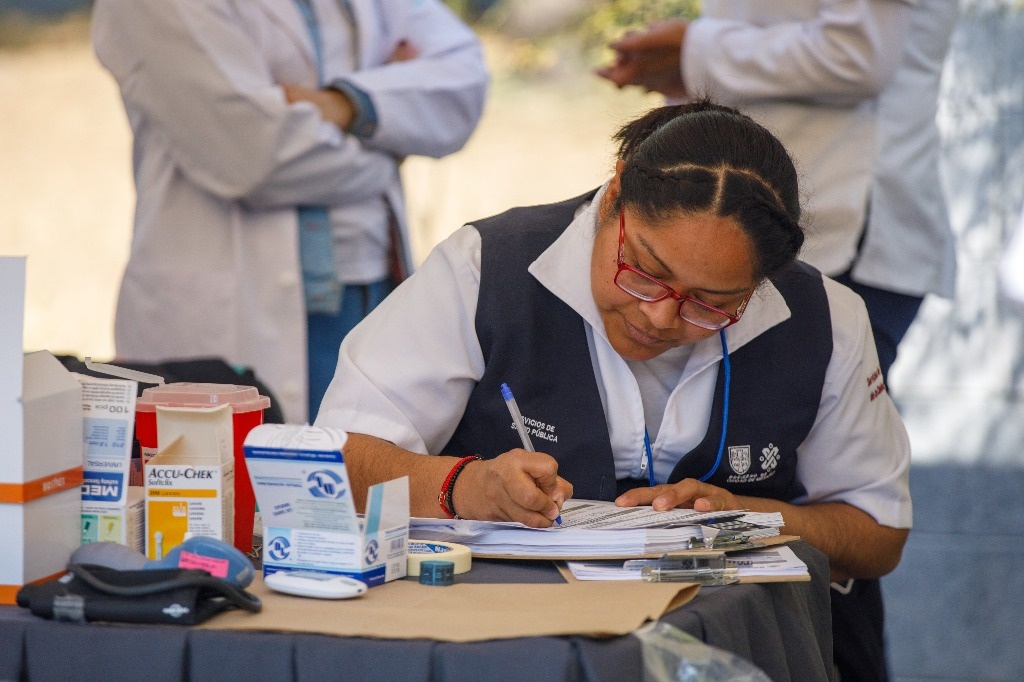The Ministry of Health, through the National Committee for Epidemiological Surveillance (Conave), today issued a new notice for all first, second and third level medical units, in response to the detection of imported cases of measles.
The notice reports on the current situation of this disease in the world and calls on public and private medical units to verify compliance with epidemiological surveillance and laboratory diagnosis actions of probable cases of measles or rubella.
The purpose is to prevent the reintroduction of the virus and guarantee timely diagnosis, as well as obtaining quality information that guides actions to strengthen health promotion and specific prevention.
This new epidemiological notice contains specific recommendations for medical units on the actions to be taken in the event of probable cases of measles or rubella; the measures upon confirmation of a case through the dissemination of the epidemiological notice among all units, state and jurisdictional or district committees.
Measles is a highly contagious viral disease caused by the virus that belongs to the Paramyxoviridae family of the Morbillivirus genus, the agency explained in a statement.
It is found in the secretions of the nose and pharynx; Contagion occurs when the sick person coughs or sneezes and the droplets of saliva they expel enter the respiratory tract of people who have not been vaccinated and who have not suffered from this disease.
The virus has an incubation period in the body of one to three weeks, and transmissibility occurs four days before and four days after the onset of the rash (the appearance of hives on the body), so, to avoid infecting other people and prevent hospitalizations, isolation at home is recommended.
The clinical picture is characterized by the presence of fever, maculopapular rash (reddish, raised spots on the surface of the skin that are distributed from head to extremities) and are accompanied by eye irritation (conjunctivitis), rhinitis-type colds, cough, and may be observed. small spots with a white center on the oral mucosa (Koplik spots). The maculopapular rash lasts four to seven days and disappears by peeling.
He assured that Mexico has a “solid epidemiological surveillance system for febrile exanthematous illness for the detection and notification of probable cases of measles, with the aim of acting immediately and avoiding any risk of epidemiological outbreak, which is why it is important to prevent infections. ”.
In order to prevent indigenous cases of measles from being registered in the country, the National Center for Child and Adolescent Health (Censia) of the Ministry of Health, recommends that mothers, fathers and guardians or caregivers get vaccinated. to health units for girls, boys, as well as adolescents in case they lack any doses to complete the vaccination schedules.
The measles vaccination schedule is two doses: the first at 12 months of age and the second at 18 months. Girls and boys born before 2022 receive the second dose at age six.
The health centers of the 32 entities have triple viral vaccines against measles, rubella and mumps (MMR) to be applied to girls and boys from one to nine years old, and double viral against measles and rubella (SR) for adolescents from 10 to 19 years. These vaccines are only supplied to the population of the aforementioned ages to begin or complete their immunization schedule.
In Mexico, in 2024 and until week 13, a total of 859 probable cases of measles or rubella have been reported, that is, suspected and subject to analysis, of which four cases of measles have been confirmed; Of these four, one is imported and three are probably related to import.
#Conave #alert #imported #cases #measles
– 2024-04-13 06:13:10


